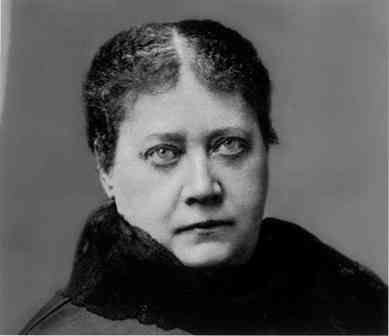 Christian Science
Christian Science and the diverse
New Thought movements that sprang out from under it have been described by theorists as the
Harmonial religions. They are described thus because they claim that the human's central purpose in this life is to be at harmony with universal laws. This harmony, once established, is representative of the pattern of the entire universe. God did not create chaos, but complete harmony - it is up to the believer to realise this and to fall into line with it.
Unsurprisingly, 'harmony' is a concept that arises regularly in
The Science of Mind, and
Holmes' concept of it is revealed bit by bit as the massive book unfolds. Just as the theorists contend,
Holmes is convinced of the inherent harmony of the universe, though such harmony is hidden from our clumsy, unrefined eyes. It is, however, a mere moment away, and could be ours, "Would that some Voice were sweet enough to sound the harmony of life" (p. 512). With this wistful statement,
Holmes seems to be suggesting that no human voice is capable of properly capturing the beauty of the Universal essence, and so this beauty remains hidden to the bulk of humanity. Our all-too-human voices succeed only in obfuscating or denying the harmony that is at work even as we deny it. Life itself, despite how it might be characterised in scientific literature, is an exercise in harmony. As always, those in the world mischaracterise it.
In his book
This Thing Called You (1948), Holmes writes: "Love is the fulfillment of the law, that is, it is only through love that the law can fulfill itself in your experience, because love harmonizes everything, unifies everything. It gives to everything, flows through everything" (p. 93). Love, then, is the cause of harmony that is so essential to a sacred life. Unless we are loving we cannot be operating in accordance with the dictates of divine law, and so are doomed to a disharmonious existence. In our own worldly existence we, through the gift of free will, are inclined to make clumsy errors and to experience pain and suffering. On the divine level - a level which we are all capable of inhabiting in the here and now - there is none of this erroneous thought and belief. Once we are channeling divine love we are operating according to law, not error, and "There is no over-action or inaction in Divine Law, for everything moves according to perfect harmony" (
Science of Mind, p. 524). It is worth noting that the promise is not of a largely happy life, or a mostly happy one - harmony will be present in
all that we do, once we are operating in accord with the laws of the Universe. Such a promise is quite attractive.
The last part of
The Science of Mind is taken up with meditations and affirmations for all kinds of problems and conditions. The meditation "On Being One With Perfect Action" asks the practitioner/reader to declare daily that "God's own harmonious actions can operate through us" (p. 525). This notion is, of course, essential to the harmonial project - it is not enough that God in heaven experiences perfection. We are capable of being agents of that same perfection, thatt harmony. We pray not to be delivered to God, but to become a part of Her. Thus mankind is capable of this evolution into Divine being in the here and now, where "'Universal harmony' is an attribute of God, and so a definition of spirituality" (
Living the Science of Mind, p. 33).
More and more I am beginning to realise that the demands made upon the practitioner and student of
New Thought are incredibly demanding, and these examples point out that what is expected of the truly spiritual person is no less than Divine Perfection. Far from being the light-weight religious option that it is characterised as being by its critics, it would seem to me a particularly gruelling path, leaving the follower no room to call on the mercy of shared human foibles. Reading the history of
Holmes' movement, however, exposes many who were all-too-human in their conduct, however, and fell short of the Divine ideal they were meant to be modelling. Even this microcosm of harmonial understanding was filled with people who, according to
Holmes' lifelong companion
Reginald Armor, "were not infrequently out of harmony with the vocabulary of metaphysics..." (
That Was Ernest, p. 162). This lack of a unified front pained
Holmes, though he always insisted on the freedom of choice of all beings, including those who were members of his own church.
In
The Sciene of Mind harmony seems to be the codeword for all that is positive in the Spiritual universe. It is an embodied quality, and also a section of the great goodness we can all expect in our lives when we increase in spiritual knowledge and practice. It is a gift from God, and "It is the Father's goodpleasure to give me the Kingdom of Heaven, or harmony and abundance..." (
SOM, p. 556).
(Image from nonprints.com)




